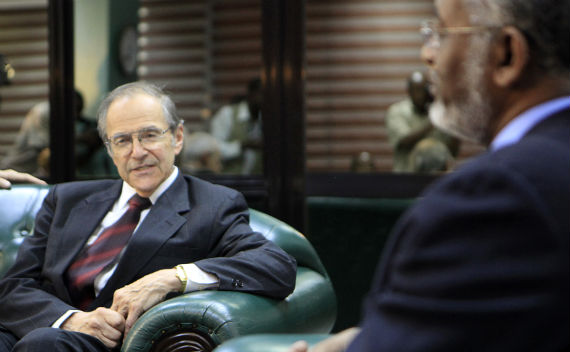The Peace Process in Sudan
More on:

Former CFR senior fellow and current U.S. special envoy to Sudan Princeton Lyman has published an excellent article in the Cairo Review of Global Affairs, “Negotiating Peace in Sudan.” In the context of the recent referendum on southern Sudan succession, Ambassador Lyman explores the long and difficult peace process, outlining both successes along the way and the many challenges ahead. He concludes:
The CPA was also supposed to usher in a period of political transformation in both north and south, with greater democracy and inclusiveness. That has not happened, and as the time for the referendum grew closer, those issues were put aside to deal with the decisions that existing leaders were in a position to make. These issues will now become more salient. Following the referendum, both north and south will need to develop new constitutions. There are large issues to be decided, on forms of government, methods of participation and inclusiveness, and human rights. These are matters in which the international community will be far less involved. They are domestic and sovereign decisions. But for the sake of both north and south, those decisions will need to be made carefully, with widespread public participation, and dedicated to a democratic outcome. In that way, each can emerge as a strong, viable, and stable state.
On another note, the Africa work of the Pulitzer Center on Crisis Reporting was recently brought to my attention. They are supporting some excellent journalists and working to highlight a number of underreported events in the western press. Check out their reporting here.
More on:
 Online Store
Online Store